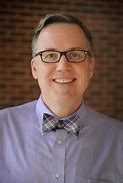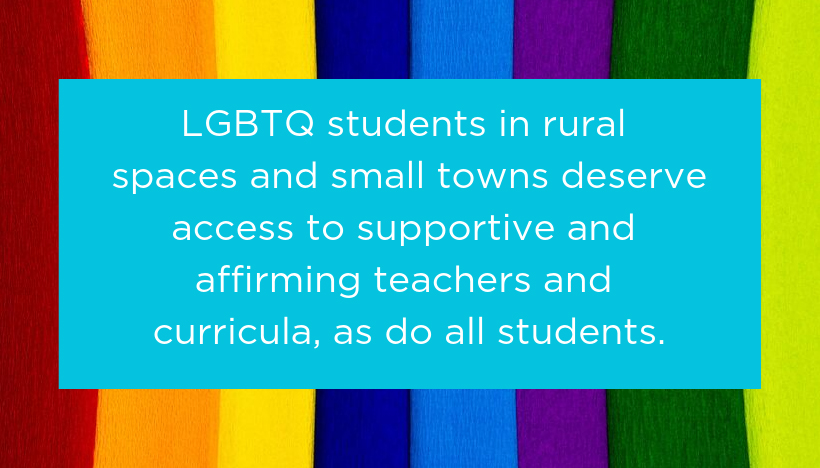From the NCTE LGBTQ Advisory Committee
This blog was written by Craig A. Young, a member of the NCTE LGBTQ Advisory Committee.
Growing up queer in rural West Virginia during the 70s and 80s was not the easiest thing I’ve ever done. I and many of my friends listened to the all-too-common advice to keep your head down and your sexuality securely in the closet until you can survive on your own. Then, head directly to the closest metropolitan area where you can finally be yourself.
So if anybody had told me that I would find my dream job, buy a house, and settle down with a husband and two cats in a rural Pennsylvania town, I would have denied it until the cows came home.
Reflecting on why I saw no opportunity to be a queer educator in a small town, I think of Marian Wright Edelman’s wisdom in saying, “You can’t be what you can’t see.”
Back home, I never saw a teacher claim a proud queer identity. I never experienced someone proving that I had a right to live and work in the schools and communities that raised me.
Many folks who live in urban and suburban enclaves see rural areas as backwards or ignorant, traits often conflated with homophobia. However, I have found that my students—many first-generation undergraduates from small villages and boroughs—appreciate that I am a teacher who respects them enough to be his true self with them.
LGBTQ students in rural spaces and small towns deserve access to supportive and affirming teachers and curricula, as do all students.
However, studies from GLSEN show that LGBTQ students in rural areas typically lack access to such teachers and materials. Many of my students will end up teaching in similarly rural areas, so it is important that they are prepared to make rural schools welcoming to LGBTQ students.
To accomplish this, I require my students to read widely and to challenge their preconceived notions of “normal” and “appropriate.” We regularly participate in book discussions and literature circles with texts that portray marginalized communities positively. We talk about “mirrors” and “windows” (Bishop, 1990), while considering how seeing or not seeing one’s self in literature will affect their future students. Moreover, I talk about myself and my life authentically and unapologetically, hopefully showing them that it is possible to be queer and successful in small-town America.
I am not naïve enough to think my cisgender, male, white, upper middle-class identities don’t offer me a great amount of protection and reify my privilege on multiple levels. In the same way, I am realistic that many districts and buildings in our educational system will not protect LGBTQ teachers in the same way my university and my union protect me. I do, however, strive to use my position to advocate for my students and provide for them the model of open, honest living that I didn’t have myself.
Each semester, I tell my students that it is my job to prepare them to teach in the world as it is, not as I might like it to be. In the same way, they must prepare their students to live in that same world. I think the best way that I can do this is to be open and honest about the professor and person I am. Perhaps, in some small way, they will be able to do the same one day.

Craig A. Young is a professor of teaching and learning at Bloomsburg University of PA and member of the NCTE LGBTQA Advisory Committee. He teaches undergraduate preservice teachers in their ELA and social studies methods courses. His current research focuses on the analysis of diversity in upper elementary teachers’ read-aloud selections.

